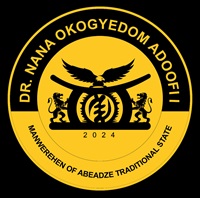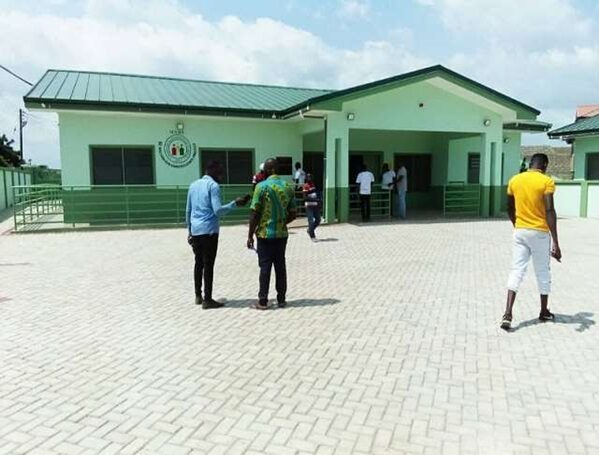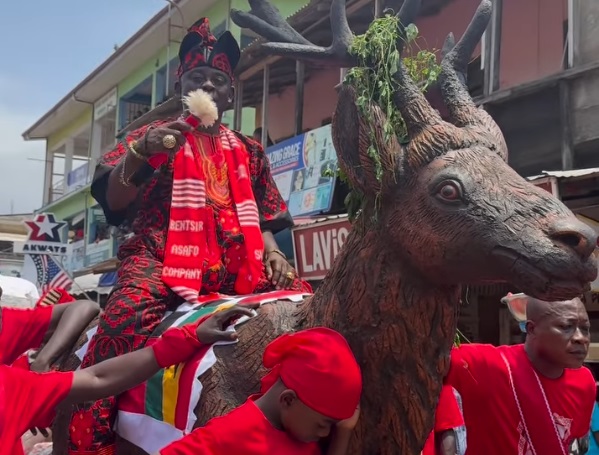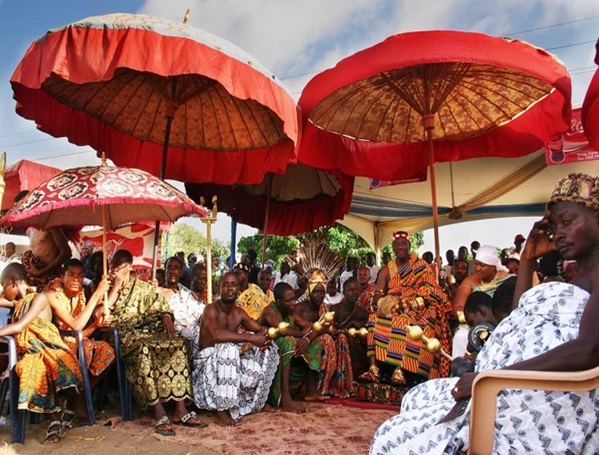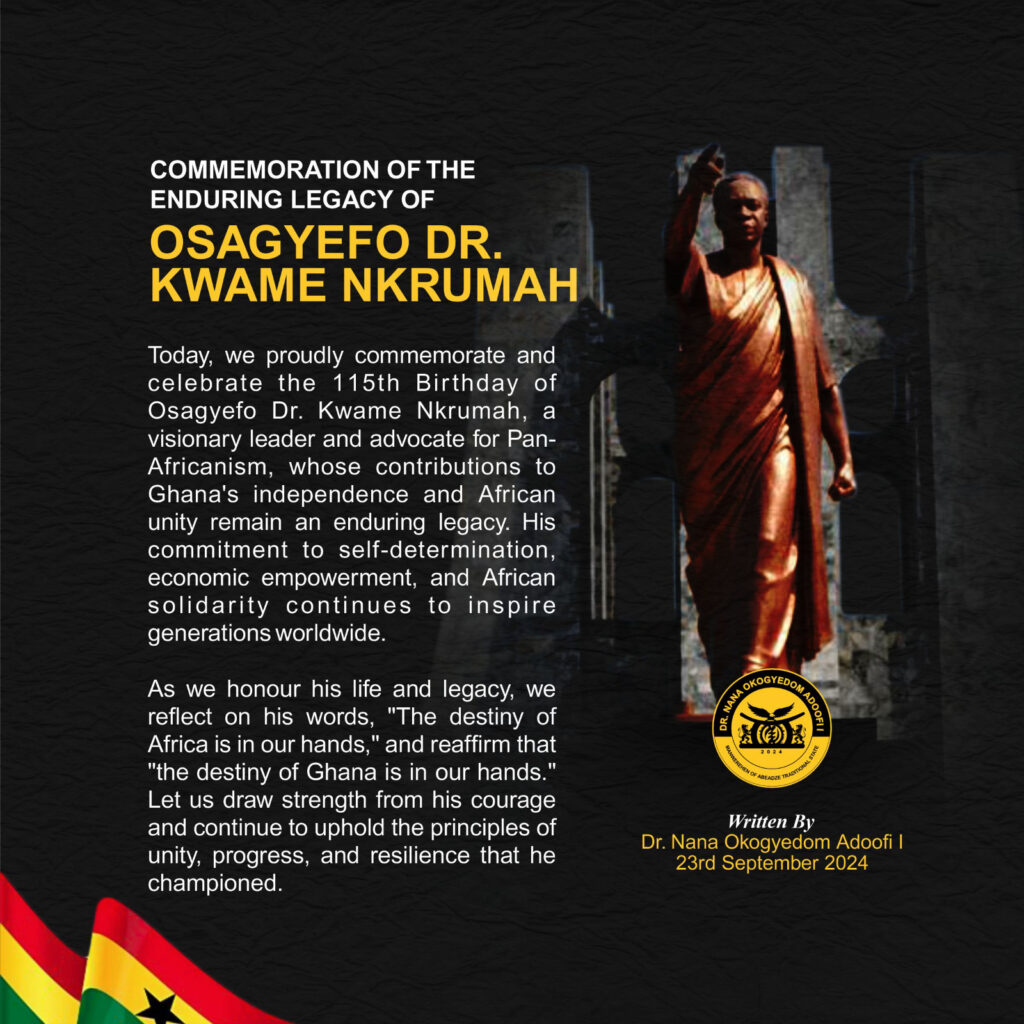ABOUT Okogyedom Adoofi FOUNDATION
NEWS & EVENTS
CONNECT WITH US
Support The Foundation
Join us in making a difference! Your support for Okogyedom Foundation helps empower communities, uplift lives, and build a brighter future. Together, we can create lasting change—donate or get involved today!
DonateBackground OF FOUNDATION
The Okogyedom Adoofi Foundation was founded by Nana Okogyedom Adoofi I, the Manwerehen of Abeadze Traditional State, who is privately known as Dr. Jonas Kofi Arhin. With an extensive background in public policy, public administration, human resources development, organisation development, entrepreneurship, governance, and community leadership, Dr. Arhin recognized the need to address the socio-economic challenges facing underserved communities in Ghana. His vision was to create a platform that would leverage both traditional leadership and modern governance principles to drive sustainable development.
The Foundation was officially registered as a Limited By Guarantee (LBG) entity with the Registrar General’s Department of Ghana, reinforcing its status as a 100% Ghanaian private, not-for-profit, and non-governmental organization (NGO). The decision to establish the Foundation was driven by the pressing need to fill development gaps in areas such as education, healthcare, economic empowerment, and environmental sustainability in underserved communities, particularly in the Central Region of Ghana.
Abeadze Kyeakor, the community where Nana Okogyedom Adoofi I serves as a traditional leader, exemplifies the kind of development transformation the Foundation aims to achieve across other communities in Ghana. Notable projects like the construction of a 20-bed hospital at Abeadze Kyeakor showcase the Foundation’s commitment to improving access to healthcare and enhancing the well-being of its people. With such impactful interventions, the Okogyedom Foundation continues to expand its initiatives, reach, and partnerships to benefit more communities throughout the country.
INTRODUCTION
The Okogyedom Adoofi Foundation is a 100% Ghanaian, private, not-for-profit, and non-governmental organization (NGO) established to champion the cause of sustainable community development. Guided by the principles of social equity, empowerment, and inclusiveness, the Foundation is committed to addressing the critical challenges faced by marginalized and underserved communities in Ghana. These challenges include inadequate access to quality education, limited healthcare facilities, high rates of unemployment, poor mindset, poor infrastructure, and environmental degradation.
Founded by Nana Okogyedom Adoofi I, also privately known as Dr. Jonas Kofi Arhin, the Foundation leverages his extensive experience in both traditional leadership and modern governance to drive impactful community interventions. As the Manwerehen of Abeadze Traditional State, Nana Okogyedom Adoofi I has been at the forefront of advocating for social and economic development in his community and beyond. His leadership, rooted in a deep understanding of both cultural heritage and contemporary development strategies, provides a unique perspective for fostering inclusive growth.
The Okogyedom Adoofi Foundation operates on the belief that sustainable development can only be achieved through a holistic approach that involves all stakeholders, including local communities, government agencies, private sector partners, and international organizations. By focusing on key strategic areas such as education, healthcare, economic empowerment, community infrastructure, and environmental sustainability, the Foundation aims to empower communities to take charge of their own development journey.
Since its inception, the Foundation has made significant strides in transforming communities by constructing essential infrastructure, promoting entrepreneurship, and advocating for social inclusion. With a strong commitment to transparency, integrity, and collaboration, The Okogyedom Adoofi Foundation continues to serve as a catalyst/promoter for positive change, working towards a future where every community member has access to the opportunities and resources needed for a dignified and prosperous life.
By implementing innovative and sustainable solutions, the Okogyedom Adoofi Foundation is making a meaningful difference in the lives of countless individuals across Ghana. As it looks to the future, the Foundation remains dedicated to expanding its impact, building stronger partnerships, and championing the cause of sustainable development for the benefit of all.
RATIONALE
The Okogyedom Adoofi Foundation was established to address the critical gaps in development and social equity that exist in underserved and marginalized communities in Ghana. Despite Ghana’s progress in various sectors, many communities still face challenges such as limited access to quality education, inadequate healthcare facilities, poor infrastructure, unemployment, and environmental degradation. The Foundation recognizes that sustainable development is possible only when all community members, including women, youth, and people with disabilities, have equitable access to opportunities and resources.
The Foundation aims to be a promoter of change by leveraging local resources, traditional leadership, and strategic partnerships to implement impactful programs that promote social inclusion, economic empowerment, and community development. By focusing on education, healthcare, entrepreneurship, and sustainable practices, the Okogyedom Adoofi Foundation is committed to transforming communities, improving lives, and fostering sustainable development in Ghana.
AIM
The Okogyedom Adoofi Foundation aims to empower underserved communities in Ghana by providing access to quality education, healthcare, economic opportunities, and social infrastructure, thereby promoting sustainable development, social equity, and improved livelihoods.
OBJECTIVES
The Okogyedom Adoofi Foundation aims to empower underserved communities in Ghana by providing access to quality education, healthcare, economic opportunities, and social infrastructure, thereby promoting sustainable development, social equity, and improved livelihoods.
Enhance Access to Quality Education:
To provide scholarships, establish educational institutions, and offer vocational training programs that support children and youth in marginalized communities to access quality education and develop relevant skills.
Improve Healthcare Services
To construct, equip, and support healthcare facilities and organize health outreach programs that ensure access to essential healthcare services for underprivileged populations.
Promote Economic Empowerment
To organize business development training, mentorship programs, and provide financial support to youth and women entrepreneurs, fostering a culture of entrepreneurship and innovation.
Develop Community Infrastructure
To invest in the development of critical community infrastructure, such as water and sanitation systems, roads, and community centers, to enhance the overall living conditions in underserved areas.
Advocate for Social Inclusion and Equity
To promote policies and initiatives that support social inclusion, gender equality, and the empowerment of marginalized groups, including women, youth, and people with disabilities.
Support Environmental Sustainability:
To implement programs that promote sustainable agricultural practices, waste management, and climate resilience, thereby protecting natural resources and fostering environmental sustainability.
- VISION
- MISSION
- CORE VALUES (IDEESIC)
To be a leading force driving sustainable development initiatives that promote social equity, diversity, inclusion, education, health, and economic empowerment.
To empower marginalized and underprivileged communities by leveraging technology and skilled staff to provide access to education, healthcare, entrepreneurship, agriculture, and social infrastructure.
- Integrity: The Foundation operates with the highest standards of ethics and transparency, ensuring accountability in all its dealings.
- Empowerment: Empowering individuals and communities to take charge of their own development and create lasting change.
- Equity: Ensuring fair treatment, opportunities, and access to resources for all, addressing inequalities and barriers.
- Diversity: Valuing and embracing differences in backgrounds, perspectives, and experiences to foster inclusion and innovation.
- Inclusiveness: Promoting social inclusion by ensuring that all projects are accessible to the most vulnerable groups, including women, youth, and people with disabilities.
- Sustainability: Commitment to sustainable practices that benefit current and future generations, with a focus on environmental, social, and economic sustainability.
- Collaboration: Building strong partnerships with local communities, government agencies, private sector organizations, and international partners to achieve shared development goals.
